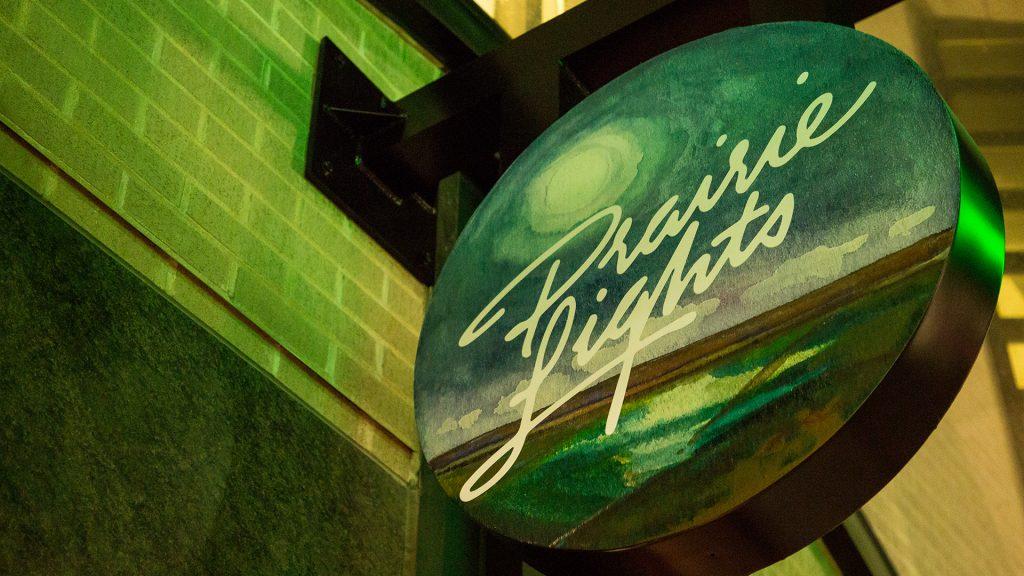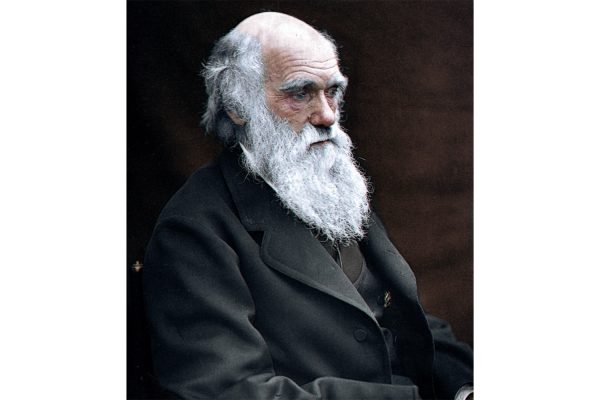Cleanness is another entry in Garth Greenwell’s world of queer sexuality
Visiting Writers’ Workshop professor Garth Greenwell read from his long-anticipated book, Cleanness, at Prairie Lights and took time to speak with the DI about his second novel.
Prairie Lights bookstore on Monday, Nov. 13, 2017.
January 28, 2020
Garth Greenwell read from his latest novel, Cleanness, his second work since What Belongs to You, published in 2016, on Monday at Prairie Lights.
It was a modestly packed room for a Monday night when Greenwell was interviewed by fellow Writers’ Workshop professor and writer Novuy Rosa Tshuma about his latest work.
Greenwell’s words were profound, each beat falling from his lips as those of a literati. Greenwell took time to discuss his intrigue with the title; how it’s something one tries to achieve but cannot without achieving its counterpart, dirtiness.
Along the lines of Greenwell’s debut novel, What Belongs to You, Cleanness is another take on explorations of queer sexuality, a topic personal for Greenwell. He spoke about one of the most pivotal and painful moments of his life during the reading, when his father used sharp profanity to disown him after discovering his sexual identity.
Greenwell spoke about how such words led to the creation of queer characters in his writing and exploring their process of transformation, discovering different parts of themselves throughout their lifetime.
Before reading at Prairie Lights, Greenwell spoke with the DI about his work. Greenwell said that those familiar with What Belongs to You should expect something similar in tone.
“I wouldn’t say Cleanness is a radical departure,” Greenwell said. “I think it expands the world and pushes certain elements of What Belongs to You much further, especially the writing of the sexual body and the writing of the queer sexual body.”
According to Greenwell, one of the first artistic mediums to find him before prose was opera, something that defined how he would see the structure of his work. While debated by book critics for The New York Times to be a series of short stories rather than a novel, Greenwell said he prefers to think of Cleanness as a song cycle.
“…There are these nine chapters that aren’t organized chronologically, but each explore an intimacy in the character’s life,” he said.
Also inspired by poetry, Greenwell discussed how a reader can determine his aesthetic through a conscientious syntax.
“My signature is a certain kind of sentence,” Greenwell said. “ I’m attracted to a very expressive syntax and a psychologically pointillistic type of syntax. I try to put on the page what thinking feels like, what the inside of a consciousness feels like. It’s a syntax that I hope can offer a visceral excitement but also inhabit a psychology of hesitation and doubt.”
Greenwell said he also aims to tell stories revolving around those of queer communities, both of which Cleanness and What Belongs to You follow.
“In terms of the type of stories I want to tell, the books I write are centered on queer lives in queer sexual communities,” Greenwell said.
Greenwell said he finds the works of previous generations as the main source for why he’s able to create such lyrical and sound prose about sexuality, something he owes to writers from the old English tradition.
“Part of the great good fortune of writing literature in English is that, from the beginning of the English literary tradition with Chaucer and Shakespeare, the sexual body is at the center of that tradition,” he said. “And then, in American poetry, Whitman radically writes the queer sexual body that I continue to find inspiring.”














